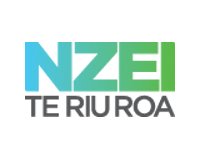Māori and Pacific peoples more likely to suffer from gout
Māori and Pacific peoples more likely to suffer from gout, less likely to be treated
Māori and Pacific peoples are less likely to receive appropriate treatment for gout, despite being significantly more likely to be affected by the disease than other ethnicities.
Data published today by the Health Quality & Safety Commission shows the prevalence of gout in Māori is twice as high as in European and other ethnicities, while the prevalence in Pacific peoples is three times higher. The prevalence in both groups continues to climb.
Gout is a form of inflammatory arthritis affecting adults. It causes severe joint pain, to the point where it can prevent people from working and socialising. It can be effectively managed with appropriate medication like allopurinol, which lowers the monosodium urate crystals that cause the disease.
However, the latest update to the gout domain of the Commission’s Atlas of Healthcare Variation shows Māori and Pacific peoples continue to be less likely to receive best-practice treatment such as allopurinol despite being more affected by gout.
The Atlas also shows:
-Māori and Pacific peoples had four to nine times as many hospital admissions due to gout than those of European/other ethnicities and for Pacific peoples the rate of hospitalisations continues to climb
-at least 182,000 people across the country now have gout, up from 145,443 in 2012, from 4.5 percent to 5.3 percent of the population
-estimates suggest avoidable gout hospital admissions and length of stay cost more than $3.8m in 2016.
In an editorial for the New Zealand Medical Journal, also published today, the Commission says the barriers preventing equitable health care must be addressed.
Leanne Te Karu, a member of the Commission’s gout expert advisory group, says: ‘Two years ago, for the last Atlas update, we published an editorial in the New Zealand Medical Journal called Gout in Aotearoa New Zealand: are we going to ignore this for another 3 years?
‘Unfortunately, despite some promising projects, our new data shows this equity crisis continues. The problem is far from stabilising, let alone waning, and our health care system is falling short of its obligations under the principles of the Treaty of Waitangi.
‘Our system has created barriers that restrict the number of people with gout who are on effective urate-lowering therapy. This diminishes their quality of life and that of their families and whānau, while increasing their costs and costs to the system through hospital admissions that could have been avoided with proper treatment.
‘These barriers for patients must be addressed and appropriate support and training provided to clinicians to help people with gout. It is long past time for appropriate programmes to be implemented before the next atlas update.’
Access the Commission’s Atlas of Healthcare Variation at www.hqsc.govt.nz/atlas/gout.
ENDS


 University of Auckland: Tributes Flow For Much Loved Pacific Leader Melegalenu’u Ah Sam
University of Auckland: Tributes Flow For Much Loved Pacific Leader Melegalenu’u Ah Sam NZEI: Ministry Of Education Cuts Will Disproportionately Affect Pasifika
NZEI: Ministry Of Education Cuts Will Disproportionately Affect Pasifika Day One Hapai te Haeata: Call To Action For Young Filmmakers Against The Backdrop Of Funding Cuts
Day One Hapai te Haeata: Call To Action For Young Filmmakers Against The Backdrop Of Funding Cuts Toyota New Zealand: Three Races For Top Three To Decide TR86 Title
Toyota New Zealand: Three Races For Top Three To Decide TR86 Title Wellington City Council: Wellington Is All Action Stations For The Faultline Ultra Festival
Wellington City Council: Wellington Is All Action Stations For The Faultline Ultra Festival Melanie Allison: Local Playwright Casts A Spell Over Hamilton
Melanie Allison: Local Playwright Casts A Spell Over Hamilton